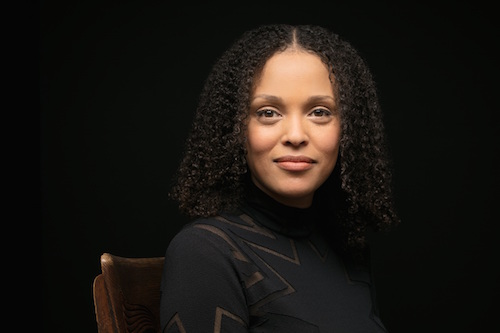Jesmyn Ward (Photo credit: Beowulf Sheeha)
By Adam Vitcavage
Jesmyn Ward is the only author I think about on a weekly basis. Her stellar Salvage the Bones is the only novel I recommend to nearly everyone looking for a new book. If I don’t murmur the words, “Jesmyn Ward’s Salvage the Bones,” in any given week, then I at least think about how much her bleak and beautiful novel punched me in the stomach while simultaneously uplifting my spirits. Now, there’s a new novel from her I can suggest: Sing, Unburied, Sing.
I recently interviewed Ward, and I felt aspiring writers and readers of Writer’s Bone might find her comments about her writing process both encouraging and educational.
Adam Vitcavage: What excites you in the undergraduate writers you teach at Tulane University?
Jesmyn Ward: The writers who take my courses write across multiple genres. Some are writing YA, fantasy, or surreal literary novels. It just depends on the student. I love it all. What really attracts me to my students work and what makes me appreciate them is the passion that they have. I think that comes out in the work even if the work is not that polished or developed as it could be. That’s what I’m there for. I’m there to help them develop and polish it. Their passion for writing, telling stories, and creating worlds is what attracts me to their work.
AV: Once you get going with a draft for a novel, do you have a set writing process?
JW: I am a very linear writer. I work from the beginning to the end. I start at the first chapter and end at the last chapter. I don’t revise as I’m going because I feel if I stop to revise the things that I’ve written that I will get bogged down and will never complete the book. So I don’t revise and I just write straight through. I try to write for at least two hours a day for five days a week. Sometimes that is easier. I have two children, so when I have child support for them or when they’re in school is when it’s easier for me to do that. Sometimes I have to patch those hours together. I’ll wake up early and work for an hour then work for an hour later in the day when I have time.
I feel like the more disciplined I am about writing for two hours a day five days a week then the easier it is for me to access my creativity. I think it takes less time to sink into the world and to do the writing I need to do when it’s something I do five days a week. That’s how you write a book: it’s something you work at every day pretty regularly for at least a year if not a year and a half or two years. And that’s considered fast. I know some people take a decade on a book. I understand why.
It’s all about hours of dedication and discipline.
AV: Once you get the draft done, what does your revision process look like? What do you look for?
JW: The way that I revise is a little weird. I finish the first draft and then I let it sit for a month. I’ll work on other small things during that time and then I go back. I’ll read through the rough draft. Just read and take notes about things that need to be revised, changes that need to be made, things that can be cut or moved around, or whatever. I make a list and go through that list. I’ll concentrate on one thing on the list while reading through the draft. I devote an entire revision to just one aspect or one correction.
If I need to develop a character, then I’ll go through and develop a character throughout a revision. I’ll cross it off the list and go back again to concentrate on another aspect. My list can have 12 or 13 items on it. That list is just things I’ve noticed. If I went into a revision with the aim of correcting all thirteen of those things I feel I would miss something. It’s easier for me to focus on one thing through a revision. I revise twelve or thirteen times before I feel confident enough to show my work to a group of first readers.
First readers are just people that I’ve gone to school with, other writers I met at Stanford or Michigan. I’ll email them a draft and ask for their help. After a couple of months, they’ll give me suggestions and I’ll go back in and revise based on their feedback. That might take six or eight revisions. Once I’ve done that I feel confident enough that I won’t embarrass myself and I’ll send it to my editor.
And then [laughs] we revise for months. I mean, it is definitely a process. I’m the kind of writer who feels nothing is ever perfect when it’s fresh. The first rough draft is never perfect. I actually enjoy revision because writing that first rough draft is difficult. It’s different work because you’re creating this world and characters from nothing. It takes a different literary muscle than going back in and revising.
Revising is more enjoyable and more fun for me. I already have something, so at least I have the security of knowing I have something to work with on the page. Then it’s all about shaping. I enjoy knowing the security of just having to focus on making something better.
To learn more about Jesmyn Ward, follow her on Twitter @jesmimi. Read more of Adam Vitcavage’s work on his official website, or follow him on Twitter @vitcavage. Also check out Adam's full interview with Jesmyn Ward on The Millions.


